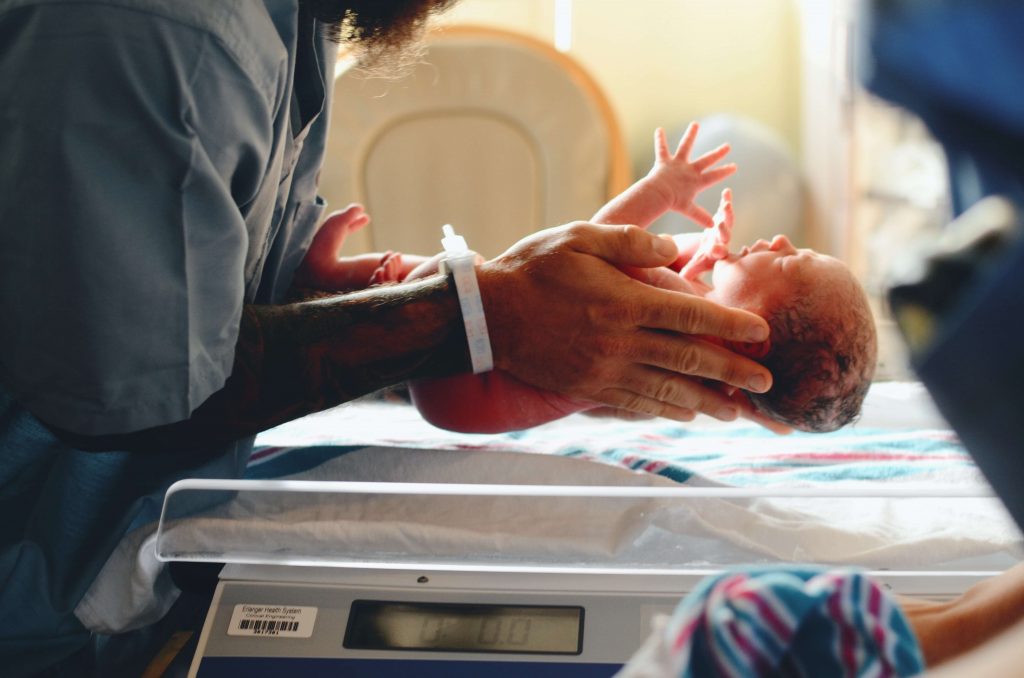Retinopathy of Prematurity:
Why Your Premature Baby Needs to see an Eye Doctor Right Now
Most pregnancies last around 9 months, or 40 weeks from the mother’s last period. They are a remarkable period of rapid growth and development, preparing the baby to survive on its own. When this is interrupted by early or premature delivery, various problems can arise such as issues with breathing. As a result, most premature babies are initially admitted to the special care nursery; many need supportive treatment including oxygen therapy and blood transfusions. These babies may need to see an eye doctor to be screened for retinopathy of prematurity.

What is Retinopathy of Prematurity?
One of the problems that can happen to premature newborn babies is an eye condition called retinopathy of prematurity (ROP). ROP happens because the blood vessels of the baby’s retinas have not fully developed, leaving parts of the retina with no blood supply. This problem is more likely to occur in the following instances:
(i)if the baby is very premature (born earlier than 32 weeks);
(ii)the lower the birth weight;
(iii)if oxygen treatment is needed at birth; or
(iv)if the baby is very sick.
Some babies with ROP will get better without treatment but others will develop bleeding and severe scarring in the back of the eyes. This can pull off the retina and cause blindness. The blindness caused by ROP is preventable with treatment if caught early and that is why your premature baby needs to see an eye doctor (ophthalmologist) urgently.
ROP Screening
In Jamaica, all babies born earlier than 32 weeks or who weighed 1.5 kg or less at birth should be seen by an ophthalmologist by the time they are 4 to 6 weeks old. Other very sick premature babies might also be referred to the ophthalmologist for screening by their paediatrician. Missing the appointment or delaying the visit to the eye doctor can be the difference between your baby being treated or it being too late for any treatment to be done.
At the ophthalmologist, your baby will be given eye drops to dilate the pupils (“eye baby”). The eye doctor will then examine the back of your baby’s eyes to see how well the blood vessels have grown and whether there is any sign of ROP. Most babies will be discharged or given another clinic date however babies with severe enough ROP will be referred to a retinal specialist for treatment.

Treatment for Retinopathy of Prematurity
Several treatment options for ROP exist including freezing treatment (cryotherapy), laser, and injections in the eye. These have all been shown to decrease the risk of retinal detachment and blindness. Even when these treatments are successful, babies with ROP need further eye care to treat other associated eye problems, most notably shortsightedness. Some babies with very severe disease may need surgery to repair the retina however this is not always possible or successful.
Every effort should be made to diagnose ROP early and to treat it if necessary. Despite this, it is likely that some babies will still lose vision from the disease. Thankfully there is still hope for these children. Some resources available include schools for children with special needs, low vision devices, and learning to read braille. Many persons who have lost vision from ROP go on to live successful and fulfilling lives. A noteworthy example is legendary singer-songwriter and 25-time Grammy winner Stevie Wonder. He went blind from ROP and still went on to have an exceptional music career.
Thankfully our understanding of ROP has improved a lot since Stevie Wonder’s time. Blindness from ROP is mostly preventable but the parents and caregivers of premature infants have a crucial role to play. Once again, if your baby was born prematurely don’t delay seeing the eye doctor. Your child’s vision could depend on it!
